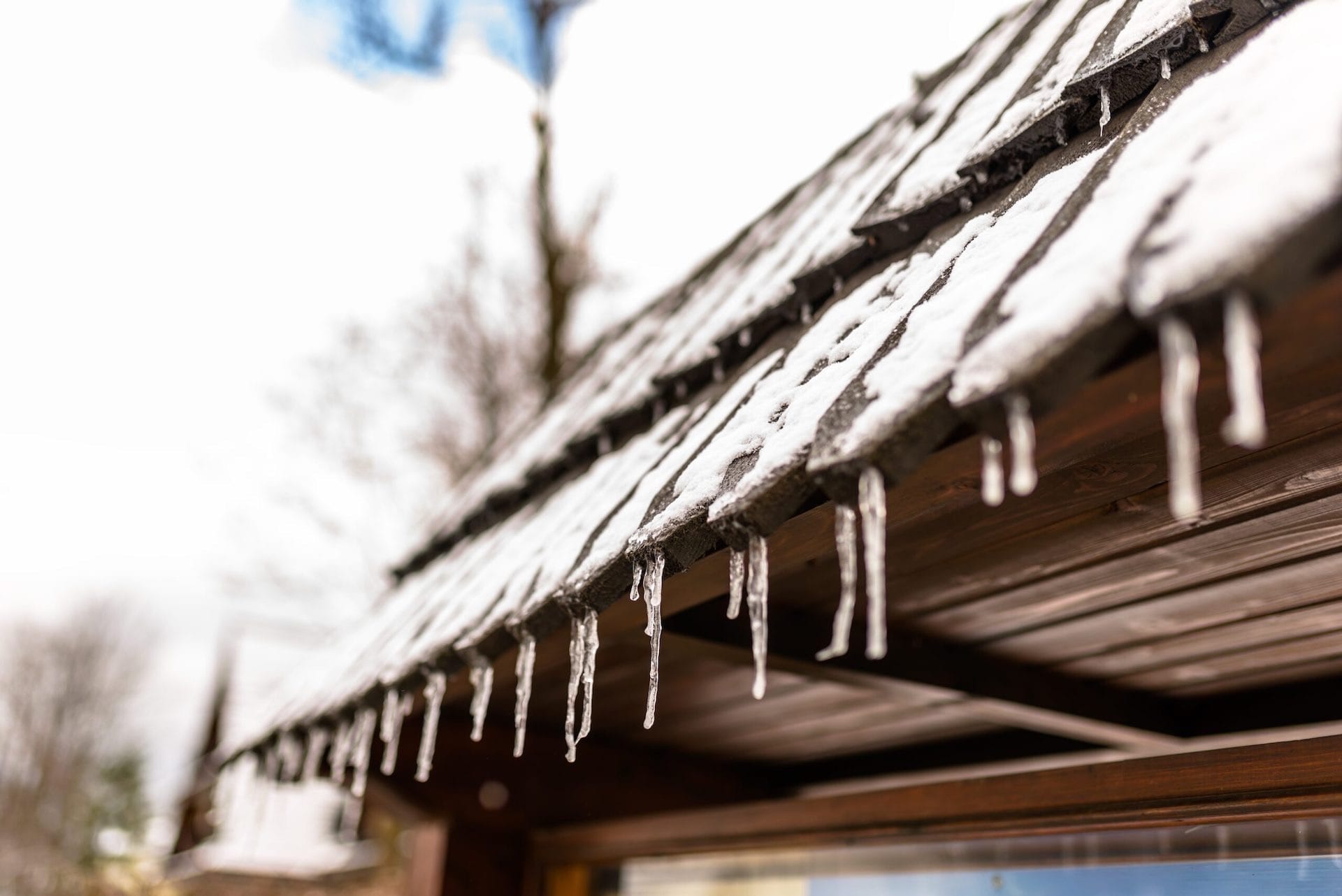The winter season can be a tough time of year, with freezing rain, falling snow, low temperatures and other hazards. And while those cold weather dangers can really take a toll on your body, the toll they take on your home can be even more serious.
If you want to enjoy your home in the Spring and Summer, you need to protect your home during the cold weather months. And no part of your home is more critical to your enjoyment, or your wallet, than the roof that is literally over your head. So whether the weather is unseasonably warm and sunny, cloudy and overcast or filled with ice and snow, watching out for these signs of winter roof damage could literally save your home.
Start by Looking for Obvious Damage
The most obvious place to start looking for roof damage is under the roof – in the interior living space of your home. Walk around all the rooms, examining the ceiling and walls closely for signs of leaks, water stains or other unexplained damage.
It goes without saying that actual water leaks should be treated as an emergency. If you see any level of water seepage, no matter how minor, your next call should be to My Town Roofing.
Did you know you can schedule an appointment online for a free onsite inspection?
Head to the Attic
Even if the water damage has not made it into your living space, the results of a damaged roof could be silently accumulating in the upper level of your home. If you want to spot that damage early, before your roof damage becomes even more severe, it is time to head into the attic.
While in the attic, closely inspect the roof, studs, structural beams, decking, etc for signs of water damage. If you see any water spots or other troubling signs inside the attic, give us a call and we’ll come out to assess the integrity of your roof for free.
Examine the Exterior
If the results of your DIY winter home inspection look fine so far, there is one more thing to do. It may be cold outside, but it is time to venture outside and take a look at your roof directly, if for nothing else, to give you additional peace of mind.
Your exterior inspection should begin with the most obvious place – the roof itself. Take a close look at the shingles, looking for any signs of cracks and damage, as well as any missing shingles or bare spots.
If you have a drone you like to fly, now is the perfect time to play with it. Allowing the drone to hover close to your roof will literally give you a bird’s eye view of any areas of damage, all without the hassle, or the risk, of climbing a ladder or inspecting an ice-covered roof or wet slippery roof.
While you are outside, take a look at your gutters and downspouts. Clogged gutters are often the reason for roof damage. And, it’s really easy for gutters to get clogged during the fall and winter months, especially if they weren’t cleared of debris from previous seasons.
Look for ice dams that may have formed inside the gutters, cracks or breaks that are allowing water to drip and other issues that could cause damage to the foundation of your home and the roof over your head.
Conclusion:
Your roof can really take a beating during the fall and winter months. Now that you know what to look for and how to spot potential damage, you will also know when to give us a call. Ultimately, being proactive with regular checks on your roof can keep your home safe, your family, and give you peace of mind.
If you spot any of these problems, we suggest that you schedule a free roof inspection online today.
